来源: Cointelegraph原文: 《{title}》
一位名为“HEX 19”的老年加密货币巨鲸在缓慢进行的黑客攻击中损失了近450万美元,其质押的HEX(HEX)在多年的时间内被逐渐耗尽。
起初,这看起来像是一个HEX巨鲸在套现。但不久之后,社区意识到他并没有主动解质押他的代币——他成为了一次重大攻击的受害者。
这次网络攻击始于2021年11月,涉及多个钓鱼钱包,并被追踪到一个名为“Konpyl”的在线实体,这是加密货币调查人员熟悉的威胁行为者。
此次漏洞不仅动摇了代币的价格,还揭露了一系列与Inferno Drainer和2024年2月价值160万美元的假Rabby钱包骗局相关的欺诈行为。
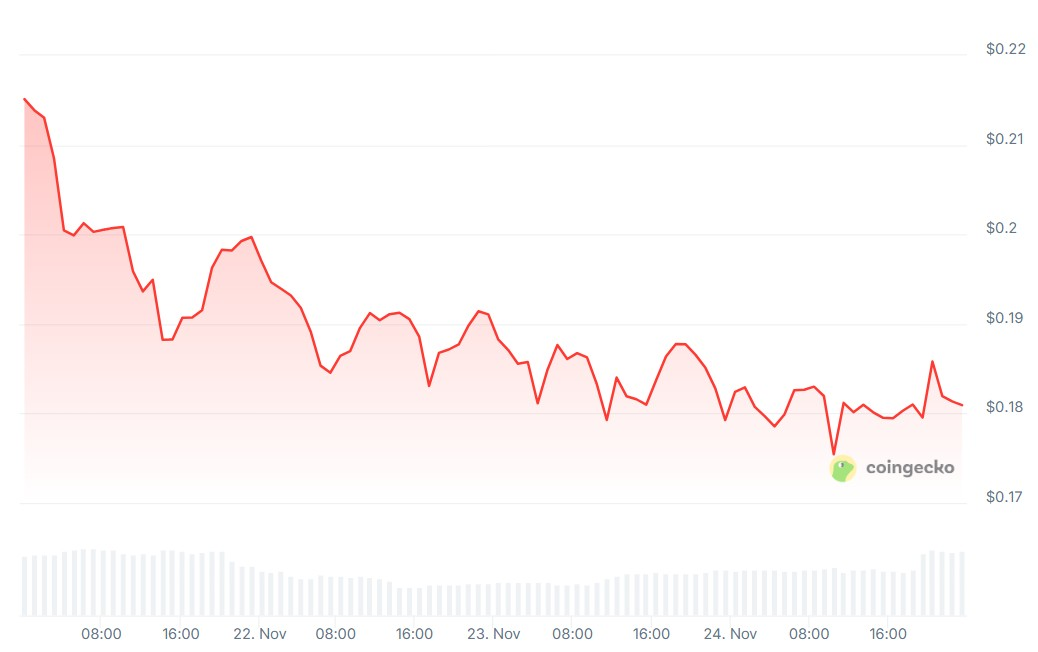
HEX代币价格在HEX19黑客事件后下跌 来源:CoinGecko
一位与Cointelegraph交流的区块链调查员匿名表示:“与假Rabby应用骗局中使用的钱包有直接的对手方暴露,HEX19受害者的资金直接流入用于洗钱非法Inferno Drainer钓鱼骗局收益的钱包。”
受害者钱包的第一批主要外流发生在2021年11月,并在几年中持续进行,因为锁定在十年期质押中的资产不断解锁,其中一些被黑客提前关闭,并受到处罚。
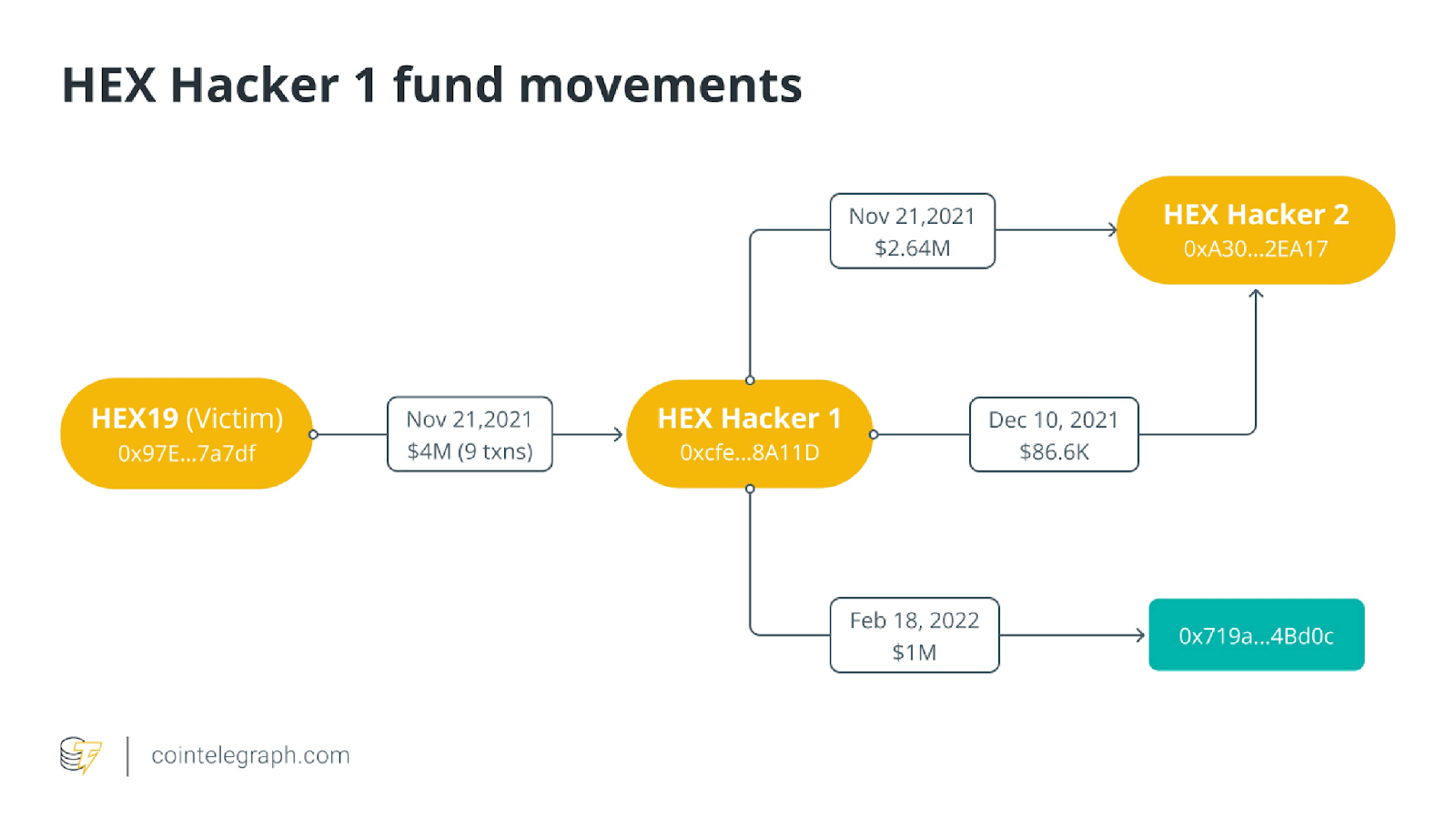
HEX19钱包在11月21日损失了近400万美元 来源:Arkham Intelligence
调查人员深入研究与HEX19黑客相关的钱包时,越来越清楚这不是黑客的单一事件。这些相同的地址一次又一次地出现在钓鱼活动、钱包耗尽和洗钱轨迹中。
HEX19黑客使用的钱包、假Rabby钱包骗局和与Inferno Drainer相关的几个计划共享一个共同地址:Konpyl。
在2024年10月的调查中,Cointelegraph的杂志分析了由一位调查员和美国政府机构收集的链上和链下证据,将Konpyl与Konstantin Pylinskiy联系起来,他是迪拜一家投资公司的高管,并在其在线活动中使用这个昵称。Pylinskiy否认与骗局有任何关联。
调查人员表示,攻击HEX19是可能的,因为受害者在云中存储了他的种子短语。交易记录显示黑客使用受害者资金进行初始转账到他们的非法账户,这是Konpyl相关计划的一个共同特征。
“HEX19黑客遵循‘Konpyl’其他骗局的类似模式,”他们说。
在2024年11月的一份报告中,Cointelegraph了解到与Konpyl相关的钱包与与Inferno Drainer相关的骗局有大量互动,这是一个骗局即服务的威胁行为者。
Fairside Network(一个加密货币保险公司)的法医专家兼调查负责人Fantasy告诉Cointelegraph,Konpyl可能更像是一个洗钱代理,而不是直接攻击者。
第一批资金在2021年11月21日开始从钱包中转移,但区块链记录显示,钱包可能早在11月3日就已被妥协,因为受害者钱包(0x97E…7a7df)有一次资金外流到其中一个黑客钱包。
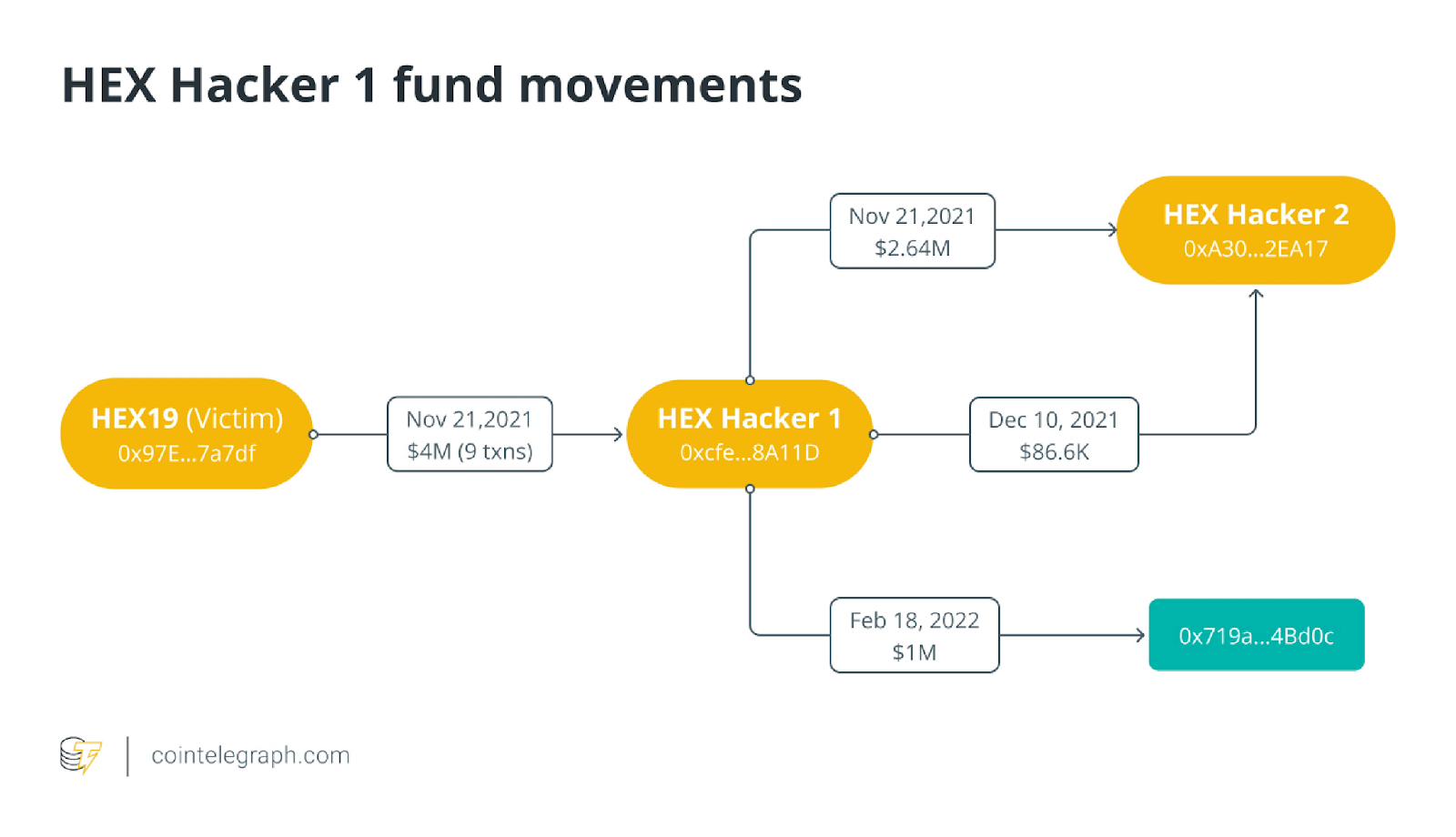
HH2钱包似乎是洗钱努力的核心。
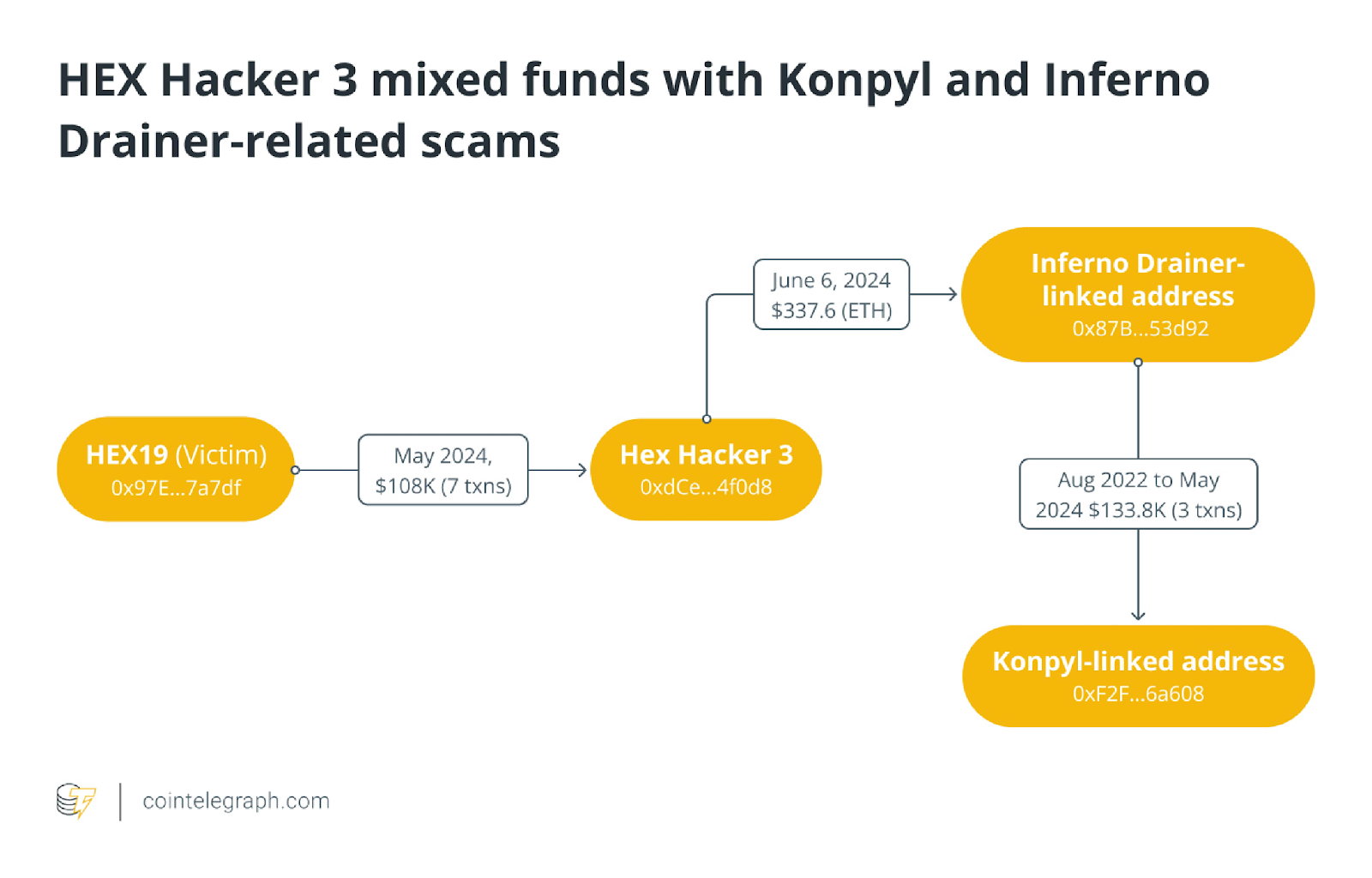
最后,第四个钱包,0x7cc…59ee2——HEX Hacker 4(HH4)——进入了画面。从2024年1月12日开始,HH4通过三月从HEX19钱包中抽取资金。
该钱包与一个已知由假Rabby钱包骗子使用的地址0x4E9…c71C2互动。
HEX19,这位退休的科技老兵,曾经历过繁荣和萧条——只是没有一次在一天之内从他的数字钱包中清空数百万美元。
他报了警,他说,交易所帮不上什么忙。剩下的质押资金,包括十年期HEX锁定,成为了定时炸弹。他知道黑客已经获取了访问权限,只是在等待提取更多。
Cointelegraph发现了至少180次可疑交易,从2021年11月到2024年10月,总额超过450万美元。受害者的钱包仍有九个活跃质押,尽管它们的价值没有那些被窃者提前关闭和提取的显著。
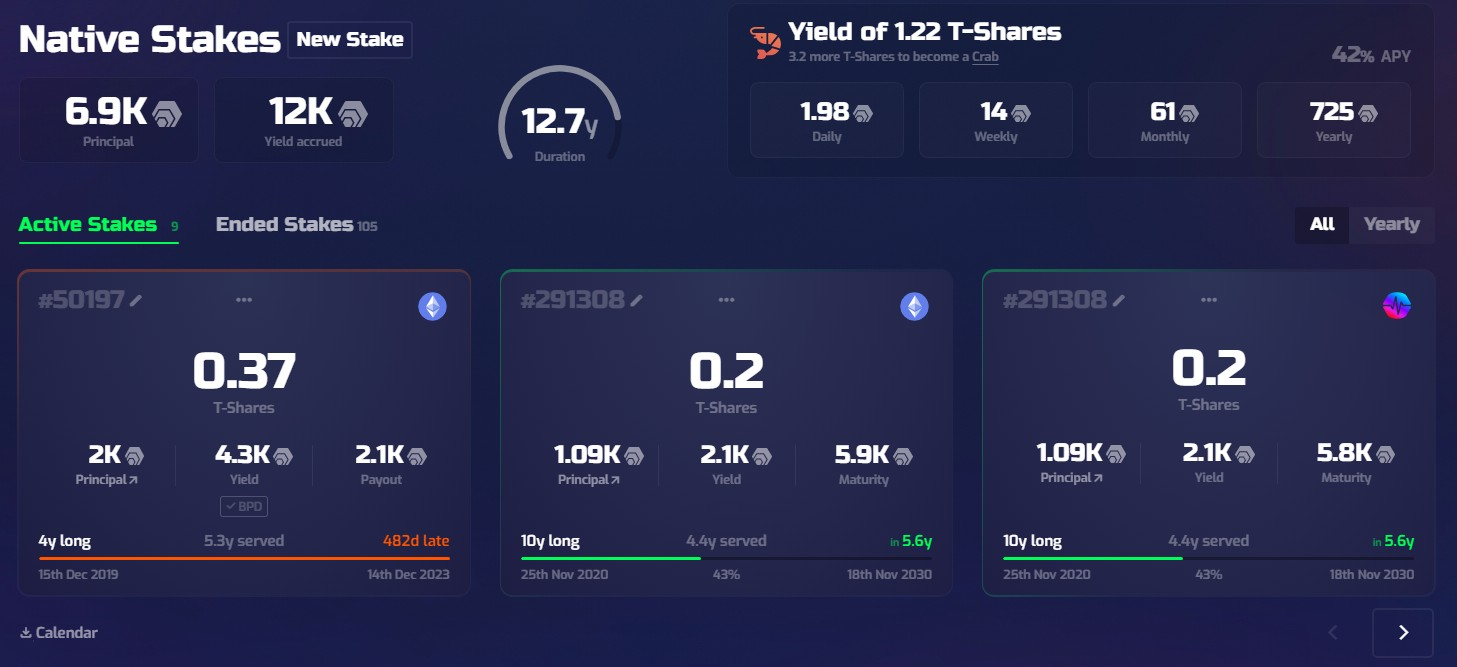
活跃质押的价值不如被黑客关闭的那些 来源:HEXscout
“你有一种心底的感觉,你说,‘哦,天哪。’然后你说,‘哦,天啊,我又搞砸了,我得告诉我家人,’”HEX19,据称是一位80多岁的退休人员,在被HEX社区成员Mati Allin采访后不久说。Cointelegraph试图联系HEX19但未收到回复。
尽管遭受损失,HEX19保持了令人惊讶的冷静:“我们退休了。我们没有债务地生活。我们生活得非常简单。我们有一个伟大的家庭,优秀的女儿,孙女,”他在2021年社区采访中说。“生活不仅仅是金钱。”
尽管他不指望能找回资金,但他希望他的经历能帮助其他人在将种子短语存储在线之前三思。
相关文章:澳大利亚监管机构将关闭95家与加密货币和浪漫骗局有关的“多头”公司
免责声明:本文章仅代表作者个人观点,不代表本平台的立场和观点。本文章仅供信息分享,不构成对任何人的任何投资建议。用户与作者之间的任何争议,与本平台无关。如网页中刊载的文章或图片涉及侵权,请提供相关的权利证明和身份证明发送邮件到support@aicoin.com,本平台相关工作人员将会进行核查。




